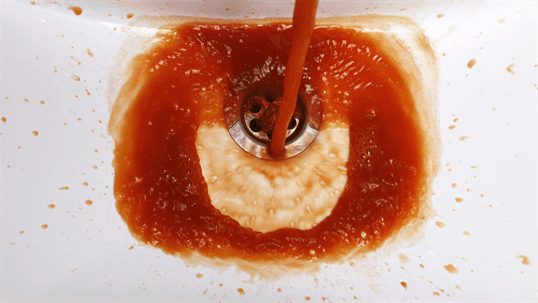Have you ever turned on the hot water faucet only to be greeted with brown, red, or even black water? If so, you're not alone. Many people experience discolored or rusty water coming from their hot water heaters, and it can be a cause for concern. However, don't panic! There are a few things you can do to address this issue. In this blog post, we'll share some tips and advice on what to do if you're experiencing rusty or discolored hot water.
Identify the Source of the Problem
The first step to addressing discolored or rusty hot water is to identify the source of the problem. In many cases, the issue is caused by a buildup of sediment or rust inside your hot water heater tank. Over time, minerals and sediment can accumulate, especially if you have hard water. If the buildup becomes extensive, it can cause the water inside the tank to turn brown or rusty. However, in some cases, the issue may be related to the pipes or a water main break in your area.
Flush Your Hot Water Heater
If the problem is related to sediment buildup in your hot water heater, flushing the tank may be all that's needed to resolve the issue. Flushing your hot water heater involves draining the tank of all water and sediment. This can be a messy and time-consuming process, so it's often best to leave it to the professionals. A plumber can thoroughly flush your hot water heater to remove any sediment or rust buildup and restore your hot water to its normal color.
Consider Upgrading to a Tankless Water Heater
If you're experiencing frequent issues with discolored or rusty hot water, it may be time to consider upgrading to a tankless water heater. Tankless water heaters are designed to heat water on demand, so there's no need for a storage tank. This means there's less opportunity for sediment and rust to accumulate over time. Additionally, tankless water heaters are generally more energy-efficient than traditional tank-style models, which can save you money on your energy bills.
Address Any Pipe or Water Main Issues
If the issue is related to your pipes or a water main break in your area, it's important to address those issues as soon as possible. In some cases, rusty or discolored hot water can be a sign of a more serious problem, such as a cracked or corroded pipe. A plumber can inspect your pipes and determine if there are any issues that need to be addressed. Additionally, if there's a water main break in your area, contact your local water authority to report the issue and find out when it will be resolved.
Practice Preventive Maintenance
To avoid future issues with discolored or rusty hot water, it's important to practice preventative maintenance. This may involve flushing your hot water heater regularly to remove any buildup, scheduling annual maintenance visits with a plumber to inspect your system, and addressing any minor leaks or issues as soon as they arise. By taking preventative measures, you can help ensure that your hot water is always clean and safe to use.
Conclusion
Experiencing discolored or rusty hot water can be alarming, but it doesn't have to be a cause for panic. By following the tips and advice outlined in this blog post, you can identify the source of the problem and take steps to address it. Whether it's flushing your hot water heater, upgrading to a tankless model, or addressing pipe or water main issues, a licensed plumber like Mike's Plumbing of SWFL can help you resolve the issue and get your hot water back to normal. Remember to practice preventative maintenance to avoid future issues and keep your plumbing system in good working order.

